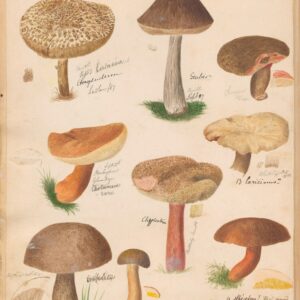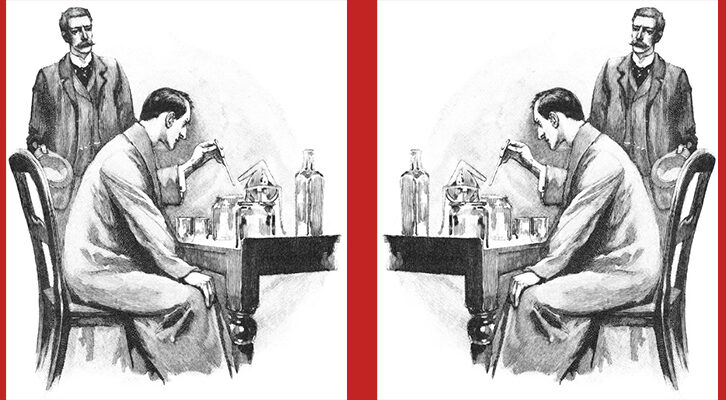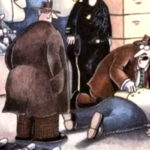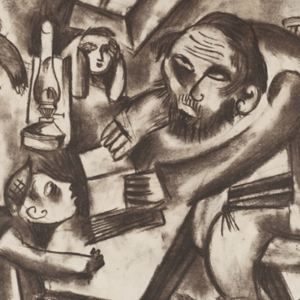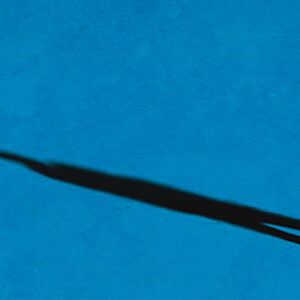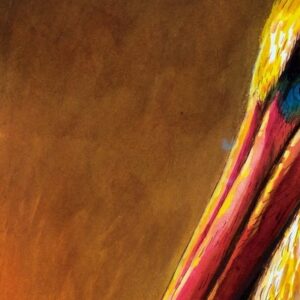
Dear Catcher in the Rye:
A Love Letter
Mary O’Connell on Her Favorite Book and Its Conflicted Legacy
It started, as so many great romances do, on a school bus that smelled like stale pot smoke and hairspray. Do you remember that snowy Kansas afternoon, me in a sky-blue ski jacket and jeans, you, resplendent in your maroon and yellow library binding? You were a classic coming-of-age novel, I was a fortunate child of the suburbs, two generations away from hunger, with a closet full of Benetton sweaters and a six-pack of strawberry Malt Duck under my bed. The bus driver’s portable radio was tuned to classic rock, and KISS, in their unwitting prescience, were screeching I was made for loving you. Your words targeted my restless loneliness, and I wanted to read you slowly, so that I might never lose the thrill of your perfect newness; I also wanted to devour every consonant and vowel.
By the time I reached my stop, I felt breathless, understood, seen: I too despised phonies and enjoyed smoking. And I now wanted to wander the streets of Manhattan, a city I could imagine so vividly, thanks to you. More specifically I wanted to wander the streets of Manhattan with your protagonist, Holden Caulfield. This desire would bring me some very unlikely grief, but that belonged to the future. For now, I was one with the page, a teenager feeling only the distilled euphoria of falling in love.
Allow me to be blunt, and non-chronological: My own teenagers read you and found you neither enchanting nor life-changing, but bright-white, entitled, homophobic. Seeing my daughter curled up in a soft chair reading you brought me such a fullness of joy: Ode to the circle of life, to the passing of the literary torch! But soon enough she looked up, troubled. “What does flitty mean?” And when my son finished reading you, he told me, gently, “I don’t think this is the kind of book people like anymore.” In one generation you devolved from receptacle of aspirational dream life/kindred spirit to the creepy Trumper uncle nobody wants to sit next to at Thanksgiving dinner.
But you had your detractors, even back in the day. When I told my high school English teacher I had randomly picked you up at the library and that I liked you—being a little cool, not wanting to expose my rabid new devotion—she seemed surprised. I was not the sort of earnest charmer known for my love of books. I was on the stoner track with a failed algebra class and summer school already on my transcript. Were we on the precipice of the sort of teacher-student connection heralded in inspirational teen movies?
She told me there was curse on you, that the man who murdered John Lennon was a Catcher in the Rye fanatic as was President Reagan’s would-be assassin. Teenagers today with internet access would already know these facts, but this was news to me, and shocking. Before I settled on the fact that a book could not be responsible for its readers, I worried about the ramifications of my burgeoning, secret daydream, inspired wholly by you. Maybe I would be a writer?
I didn’t know any writers, so it seemed both as impossible as moving to Pluto and also like it might be super easy, way easier than working at Hickory Farms at the mall. I wore a gingham shirt and denim skirt and handed out samples: Would you like to try our meltaway mints? Would you like to sample the sausage? Roughly ten percent of the men, some older than my father, would stage-whisper some doltish form of “I’d like to give you the sausage” as they walked away from my 15-year-old self, chuckling.
When my son finished reading you, he told me, gently, “I don’t think this is the kind of book people like anymore.”
I imagined Holden Caulfield there in the mall’s neon distance, standing by The Sunglass Hut. He grimaced at my Hickory Farms humiliations—a cigarette dangling from his mouth—and raised his arms, hands palms-up like a priest about to sing a liturgical apology for the world at large: I’m so very very sorry things are this wa-ay.
I clung to my weird writer-daydream as a young adult and then, like an inspirational meme come to life, I started to think: If I can dream it I can do it! After college I went to graduate school, where I pronounced you my favorite book to a fellow student who responded with a wince. “Ugh. Salinger.”
After the silence, she gave me a sad little nod, a coded smile: Of course that’s the sort of book someone like you would enjoy, a captain of the football team book, not just a book for boys, but a book for self-aggrandizing boys. Bummer about your internalized misogyny!
I knew I should have said Wise Blood in a hushed, reverent tone. I shared a gender and an ethnicity and a religion with its author, Flannery O’Connor, an alumnus of my writing program. (In a grim plot twist, I would soon be diagnosed with an autoimmune disease). But Flannery O’Connor was very racist—yes, even for her time—and I found her writing cold and overly orchestrated: The fireworks sizzle and boom of her cruciform metaphors were not for me. As my favorite writing teacher had said: Not every book is for everybody.
You were for me. You were always for me.
I finished the program, published a short story collection and a YA novel, and then something wild happened, a cymbal crash of validation: I sold a book about you, an updated version of Catcher in the Rye. Yes, I mined my embarrassing young dream about exploring Manhattan with Holden Caulfield and was rewarded with a minor miracle. I received a life-changing offer, along with the news that my new publishers were popping champagne bottles in the New York offices. I felt like I might be levitating.
Though when book deal was announced, thrillingly, in the big newspapers, there was a bit of backlash amongst commenters. Hey, even this was exciting! A Guardian reader calling me a literary parasite? Thank you for your attention, kind sir! For in my regular life I am but a random Kansas mother driving three children around in a mini-van, someone who certainly would not merit your consideration, and, as such, the joke is on you! Because all my dreams were coming true! I was writing an homage to my favorite novel! I had a big book deal!
Did I, though? Here’s a kooky thing I did not know could happen: A person could get a call on a random Thursday while layering sauce and lasagna noodles, saying that, due to mounting legal concerns, the book deal was off.
This was the way to really take down a Midwestern lady—stab her in the heart while she’s making a casserole. Because it did not occur to me that this was a possibility. I had never heard of this happening to anyone. I hadn’t signed a contract right away with my previous books, and there was never a problem.
When I hung up I lay on my bed and stared up at the cottage cheese ceiling, my heart pounding and my hands trembling. I wondered if the call could have been some kind of lucid nightmare? But no, the call was real; the curse my teacher had warned me about years earlier was also not only real, but crafty and patient and playing the long game, stringing me along for decades only to annihilate my would-be triumph.
Yes, I blamed you even while I heard my older kids downstairs, their laughter and music swirling up through the heat vents. My baby was four that year and chattering along with her My Little Pony video in the next room. In order for my children to exist in the world in their precise forms—kind-hearted, and funny, and fun—I had to read you on the school bus all those years ago. You put me on the path to New York City, where I met a guy at a bar, as one does. I had never, have never, met anyone like him. He was from Kentucky, and he could field dress a deer—later, he would be supportive of our vegan child—and write beautiful stories and fix a car. We held hands and explored the island of Manhattan together. We gave our romantic lives a surprise happy ending.
You were always a blessing. Though this was not a conclusion I reached the day I received the call.
I re-read you recently, now that the sting of our high-stakes history has cooled. Like any middle-aged person scouring Facebook to appraise their first love, I was disappointed to find you had not aged perfectly. My children’s concerns about you were not incorrect. But also? In some passages? You were still kind of amazing. Okay? All these years later, I could still see it. I remembered our first night together, after our momentous bus ride. My window was cracked so I could smoke undetected while I read in the coziness of my teenage bedroom. That feeling! The bulk of my life was a mystery then, my hard times and my joys still on the shelf. Now when I closed the cover on that world I thought: Oh, come back to me.
Mary O'Connell
Mary O'Connell is the author of the YA novels Dear Reader and The Sharp Time, and the short story collection Living With Saints. Her writing has appeared in Longreads, The Chicago Tribune, Salon, The Sun, Columbia, and elsewhere.









